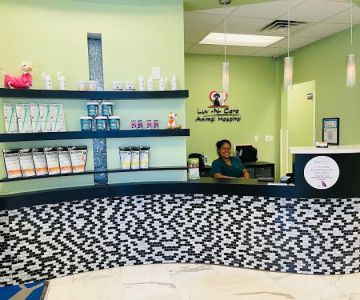- 1-understanding-pet-iguanas
- 2-creating-the-ideal-iguana-environment
- 3-feeding-and-nutrition
- 4-health-maintenance-and-monitoring
- 5-common-challenges-and-expert-advice
1. Understanding Pet Iguanas: What You Need to Know
Pet iguanas are fascinating reptiles that have become increasingly popular among exotic pet enthusiasts. Understanding their natural behavior, physical needs, and temperament is the cornerstone of responsible care. Iguanas originate from tropical regions where they thrive in warm, humid environments and spend much of their time basking in sunlight. Their behavior often reflects their need for warmth, security, and proper nutrition.
For example, a friend of mine once rescued a wild iguana that was struggling due to poor care. By learning how to care for a pet iguana properly, including creating a warm habitat and providing the right diet, the iguana gradually regained its vitality and became a lively companion. This story highlights the importance of understanding the animal’s natural instincts and needs before bringing one home.
1.1 Key Traits and Behavior
Iguanas are generally calm but can become territorial or stressed without the proper environment. They rely heavily on UVB light to metabolize calcium effectively, making lighting one of the most critical aspects of their care. Recognizing signs of stress or discomfort, such as lethargy or loss of appetite, helps owners take timely action.
1.2 Lifespan and Commitment
Unlike many small pets, iguanas can live 10 to 20 years with proper care, which means owning one is a long-term commitment. This factor often surprises new owners and underscores the importance of preparing adequately for their care needs.
2. Creating the Ideal Iguana Environment for Optimal Health
Setting up the perfect habitat is essential for iguana well-being. They need a spacious enclosure that mimics their natural environment. The enclosure must have controlled temperature gradients, high humidity, and access to UVB lighting. These conditions support their thermoregulation and calcium absorption.
2.1 Temperature and Humidity Control
The ideal temperature during the day ranges between 85°F and 95°F, with a basking spot reaching up to 100°F. At night, temperatures should not drop below 75°F. Humidity levels between 70% and 85% prevent dehydration and promote healthy skin shedding. Many owners use automated thermostats and humidifiers to maintain these conditions consistently.
2.2 Lighting Requirements
UVB lighting is indispensable. Without it, iguanas risk developing metabolic bone disease, a common and serious condition. Lights should be on for 10 to 12 hours a day to simulate natural sunlight. Additionally, full-spectrum lighting enhances their coloration and overall activity.
2.3 Enclosure Setup and Enrichment
The enclosure should include sturdy branches for climbing, hiding spots for security, and a water dish large enough for soaking. Enrichment not only reduces stress but also encourages natural behaviors. A client of Hidden Brook Veterinary shared how their iguana became more active and visibly happier after upgrading its habitat with climbing structures and natural foliage.
3. Feeding and Nutrition: Ensuring a Balanced Diet
Proper nutrition is fundamental in iguana care. These herbivorous reptiles require a diet rich in leafy greens, vegetables, and occasional fruits. Protein-heavy foods and animal-based products can cause health issues and should be avoided.
3.1 Recommended Foods
Leafy greens like collard greens, mustard greens, and dandelion leaves form the bulk of an iguana’s diet. Vegetables such as squash, bell peppers, and green beans provide variety and essential nutrients. Occasional fruits like mango, papaya, and berries can be offered in moderation.
3.2 Foods to Avoid and Hydration
Foods high in oxalates or goitrogens, such as spinach and kale, should be limited as they interfere with calcium absorption. Also, iguanas require constant access to fresh, clean water. Hydration supports their kidney function and helps with regular shedding.
3.3 Feeding Tips and Observations
Observing your iguana’s eating habits is a great way to gauge its health. A sudden loss of appetite can signal illness. One Hidden Brook Veterinary expert recounts a case where early detection of appetite loss helped save an iguana from severe metabolic complications through timely intervention.
4. Health Maintenance and Monitoring Your Iguana’s Well-being
Regular health checks and monitoring behavior are vital in preventing common diseases. Iguanas can suffer from parasites, infections, and metabolic bone disease if neglected.
4.1 Recognizing Warning Signs
Signs such as swelling, lethargy, discolored skin, or abnormal feces warrant veterinary attention. A proactive approach includes scheduling routine checkups with a reptile-savvy vet.
4.2 Preventive Care Practices
Maintaining proper hygiene in the enclosure, ensuring correct lighting and diet, and regular hydration help prevent many issues. Nail trimming and occasional bathing also contribute to their comfort and health.
4.3 Trusted Veterinary Support
Consulting professionals is key. Hidden Brook Veterinary specializes in reptile care and offers tailored advice, products, and medical services designed to keep your iguana healthy. Their expertise has helped many iguana owners successfully manage complex health challenges.
5. Common Challenges and Expert Advice for Iguana Owners
Caring for iguanas comes with challenges that require patience and knowledge. Issues such as aggression during territorial phases, improper shedding, and dietary imbalances are frequent concerns.
5.1 Behavioral Challenges and Solutions
Understanding iguana body language helps mitigate aggression. Providing adequate space and enrichment reduces stress. Owners often find that consistent handling and gentle interaction build trust over time.
5.2 Shedding Problems and Care
Shedding can be tricky; low humidity or poor nutrition exacerbates difficulties. Regular misting and soaking are practical solutions. Hidden Brook Veterinary recommends specific supplements and habitat adjustments to support healthy shedding cycles.
5.3 Advice from Experienced Iguana Keepers
Learning from others’ experiences is invaluable. Many owners share how joining reptile care communities or consulting specialists transformed their pet iguana’s quality of life. Personal stories often reveal simple yet effective care hacks that make a significant difference.











